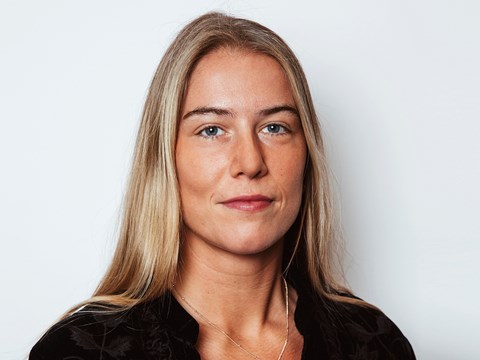What I wish I’d known about clients when I worked in an agency...
24 Feb 2023
When chatting to clients who have previously spent time working at agencies, there’s a recurring discussion around how different their actual role is within their client organisation compared to their impression of the role through their agency lens.
With this in mind, we thought it would be interesting to ask a few friendly clients who began their careers agency-side what they wished they’d known about life as a brand owner back then.
The responses vary from the practical through to the emotional, and there are clearly a number that overlap and are consistent. Hopefully these pearls of wisdom will help you and your colleagues in your quest to understand your clients a little better, as well as providing you with ideas to improve your interactions and relationships with both your existing clients, and to some extent new business prospects, too.
Katrina Curl
Marketing Director, Xampla
One: The agency brief is only 5% of the client's workload. They are thinking about, and often worrying about, many other things so an excellent way to win favour quickly is to make things as easy and fast as possible. Everything from concise emails, to being on top of the detail, to getting information about the products right first time in creative work. It all helps and will ultimately lead to greater partnership and trust in the working relationship.
Two: Asking how the business is going and what is new regularly (not just when you take the client for lunch) makes for better, and ultimately more, work. Understanding a client’s changing pressures and priorities will not only help you to understand why you are being given certain feedback but can also open doors to new and unexpected business opportunities.
Three: Chemistry meetings are about chemistry, not creds. The agencies that performed best in our initial meetings, and ultimately were chosen to pitch, spent less time talking about themselves and more talking about our brief. The best performing teams also crucially demonstrated a chemistry and warmth with each other that made rapport building with us, the client, much faster and easier.
Amy Gilbert
Marketing Director, Virgin Media
One: Life client side is complex. We have multiple things to juggle, and multiple internal stakeholders and external partners. Advertising campaigns are the most visible, one of the most powerful and for most of us, the best part of what we do, but behind the scenes there is a lot that goes on to get us to this point. We spend a lot of time day to day on things that you don’t see, be that managing budgets with finance, working with product and commercial teams on propositions and pricing, sales teams on trading performance and optimisations, procurement teams on agency management as well as HR and people management. This is in addition to bigger picture strategy, planning and objective setting. So, bear with us if we have other things going on and make life as easy as you can for us by planning ahead, scheduling time in advance etc. so we can make sure we spend the right time with you.
Two: We see our agencies as partners; an extension of our team. You can be the strongest asset to us if you know the business, the market and our challenges inside out. Ask lots of questions, delve into our competitor set, come along to customer closeness events, immerse yourselves in our brand tracking and come and work in our offices regularly. We want you to provide a different perspective and challenge us on our strategy or trends or details we may have missed.
Three: We have to fight for every £ of our marketing budget and prove its worth, particularly when it comes to less obviously sales-driving channels. Demonstrating marketing effectiveness is a critical part of what we do. This is why we always ask what is this idea going to do for the brand/ business. The answer may be at the top of the funnel driving brand connection which plays a key role in consideration, but we ultimately need to be confident that it is money well spent. Most of us are in this business because we love advertising, we want to make outstanding work that will make us famous, but for us the barometer is real impact on the brand and the business, not on awards won won (although if we get the first bit right awards should follow!).
Matthew Heath
Chief Marketing Officer, EMEA, Invesco
One: I had no real idea how little time I would actually spend thinking about marketing communications and creative work. I used to panic when I couldn’t get the attention of my senior clients and make pessimistic assumptions it meant they weren’t happy with the agency. If they are unhappy, they would tell you. Otherwise, it is just because CMOs are busy with a huge range of things; the job spec has grown beyond recognition in the last decade or so.
Two: Marketing success stems from a classic blend of art and science. As the latter has grown, with an explosion of data and digital cleverness, we must not forget the equally vital role of the former. This is such an opportunity for agencies. Their immense strength is in applying creative, lateral thinking to solve problems. Those problems can range way beyond marketing communications. We can use your help at a business level, not just a marketing one.
Three: It is always, always about the people. I do not ‘hire agencies’, I work with a team of partners, and I have little interest in the label above their door. As clients, we value genuine collaboration from a team which provides consistency alongside diversity, challenge alongside pragmatism and brilliant strategic thinking alongside brilliant execution. The only thing that really matters is whether the right people are in place to provide that. If they are we have no inbuilt desire to change. Partnership is a long-term game, but far more rewarding than switching agencies in search of a magic answer.
Elliott Moss
Partner and Chief Brand Officer,
Mishcon de Reya LLP
One: Clients value someone who knows their business. This has become a truism, but it shouldn't be. Really knowing what is what in a client's business makes a major difference to the advice you are selling; to its value and to your longevity as Agency partners. Know what drives our economic engine, know what the category is up to; know what the wider world is up to so that you can help us be brave about embracing what makes our business different.
Two: Clients value someone who challenges them. We don't want yes men and women; we want intelligent, passionate, knowledgeable creative strategists who can help us. Agencies who take instructions aren't worth the fees they are paid.
Three: Clients are happy to pay proper fees for proper advice. Don't short-change the investment you make in your people and clients won't short-change on paying for the great advice that those people are able to deliver. The opposite is also true.
Four: Clients value attention to detail. Please care. It's painful, stressful, wastes time and undermines trust if you don't. Whatever it is, paying attention generally means there are less mistakes, too. But more than that, it shows you are invested in our success.
Sam Southey
SVP Global Head of Brand
Equity and Creative, Coty
One: Worrying Work: Ensuring the creative work works is the thing that keeps your client awake at night. Actually. For real.
Two: The IRL Epiphany: That creativity really does power growth in real life, is gold dust… and addictive. It’s client catnip. So, create the circumstances that allows the client to live that feeling on their brand, however big or small or sexy or boring, and you will never look back.
Three: Simplicity: When you think you have made the creative work simple, make it simpler still for the client ... and the consumer.
Four: Less, Much Less: Too many people, too much talk often gets in the way, of real discussion and progress. Time is precious. Keep it small.
Chris Taggart
Director of Marketing, Smart Energy GB
One: I wish I’d known the magic felt as a client when an agency is keen and capable of working with the whole organisation, not just marketing. Nothing ‘sparks joy’ for a time-poor senior marketer like hearing an agency has helped us unlock progress directly with insight, e-commerce, operations, public affairs, or a product team! Good agencies are fielding talent that is capable and confident enough to bring their unique skills and influence inside client’s own project teams, alongside marketing, working directly with a whole client organisation. Agencies benefit by getting work away faster, building new relationships, and gaining a holistic understanding of how to increase their scope of work beyond marketing.
Two: I wish I’d known that agencies seem to be struggling increasingly with their organisational ‘working memory’ about their clients’ brands and businesses. When I worked in agencies, we sold ourselves as the guardians of long-term strategy and implementation, often codifying them for our clients in great detail. And yet our client’s day to day frustrations seemed to grow about the burden of training the agency’s new people, and repetitiously alerting the agency to their day-to-day ignorance about own strategies, guidelines or common practice on our account! Now I’m a client, I do feel that growing gap between agency’s ambition and practice here. Which is understandable. Agency people are changing at a faster rate, more are working on a project basis, and are led by fewer, more time-constrained leaders. Can agencies devise living systems and set expectations that create the survival of working client knowledge amongst their people, from project to project?
Three: I wish I’d known predictability in how an agency shows up is a vastly under-valued currency in agencies. Most agencies rightly delight in creating brilliance, raising the ceiling in a client’s thinking. But that can’t of course mean an agency strike-rate of 50% brilliance, and 50% disaster. It is not until you’re a client that you realise quite how much value there is in an agency that is predictably good. It was not until I was a client that I felt the sheer relief that is working with an agency that consistently delivers good answers, most of the time. It is very hard to work with a wide variety of performance, in terms of impact upon wider business delivery, and the time-cost on the client to frequently support wayward agency response to briefs. Consistency must not, of course, mean consistently average. But I do suspect that the currency of trust accrued of agencies showing up consistently enables clients to buy into the rarer, high-risk ‘moon shot’ brilliance from the agency when that is on the table.
Kate Waters
Director of Client Strategy and Planning
(Commercial and Online), ITV
One: Know how the other half lives. I spent my career in creative agencies before making the jump to a media owner. It was only then that I really took the time to understand the media side of the advertising equation. If I'd known what I know now when I was sitting in an ad agency, I'd definitely have asked better questions of my media agency partners in crime and done a better job for my clients. So, take the time to find out how the other half lives; the work, the brand and the business will be better for it.
Two: Be a corporate detective and historian. Big companies are like microcosms of society: Full of hierarchy, deeply embedded cultural norms, conflicting priorities, politics, and emotion. Let's face it, business is anything but rational. So, if you want to be a helpful and effective partner to your clients, make sure you understand this deep (often legacy) cultural stuff. Ultimately, it's what will shape your budget and the corporate appetite to buy whatever it is you're trying to sell.
Lisa Thomas
Chief Marketing Officer,
Motability Operations Ltd
One: Don’t automatically assume that creativity is valued across the business. Outside of the Marketing and Brand teams, creativity is seen as ‘fluff’ (and even if it isn’t, it is generally best to assume that is how creativity is perceived when you first arrive). That means you need to demonstrate the value that creativity and any marketing activity delivers for the brand and the business.
Hamish Kydd
Brand Marketing Manager, The AA
One: Clients only have one brand to work with and so they are naturally going to be more demanding. This isn’t usually the case for an agency team who is often juggling it’s time between lots of accounts and needing to manage expectations as best they can. I’ve been agency-side and had frustrations with very demanding clients, especially when it’s more than one of your clients at the same time. That said, having now experienced client-side, I am much more empathetic to why clients can be overtly demanding and always pushing for perfection. As long as the demands are reasonable, and they get the work to a better place then try and find empathy where possible!
Two: A slower pace and more complex organisational structure means it can be challenging for client teams to get things done quickly. I appreciate this varies depending on what agency and business you’re at, but I moved from a small agency to a large corporate brand and this was a massive shift. I used to find it frustrating responding to briefs with multiple scenarios and struggled to understand why clients would often miss deadlines. The reality is that clients have a lot of internal stakeholders to manage and therefore they need to be as good at Marketing internally as they are externally to build stakeholders’ confidence. Confidence within functions makes decision-making within businesses happen faster and more easily but can be difficult to achieve, especially when senior management changes client-side. Acknowledging this and being proactive with how an agency can help makes a massive difference.
Three: Getting to the point quickly when communicating (whilst knowing when the detail is required). ‘I didn’t have time to write a short letter so I wrote a long letter instead’ is a quote I can only recently appreciate. Moving from an agency to client-side has taught me to be much more to the point. Obviously, this varies depending on what is being communicated but as a general principle, I wish I was more ruthless whilst agency-side in getting to the point (rather than spending too much time building up to it). On the brand side, especially when dealing with senior stakeholders who have little time, this is a skill that I was, thankfully, forced to become much better at.
About The Author




